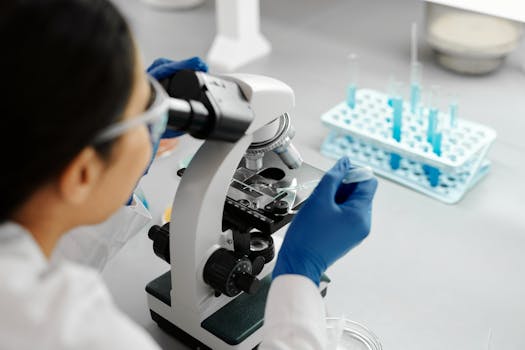
The Role of Genetics in Human Health and Disease
Genetics plays a crucial role in human health and disease. The study of genetics has led to a greater understanding of the complex relationships between genes, environment, and disease. Genetic factors can influence an individual’s susceptibility to certain diseases, as well as their response to treatment. In this article, we will explore the role of genetics in human health and disease, and discuss the latest advances in genetic research.
Introduction to Genetics

Genetics is the study of heredity and variation. It involves the examination of the structure and function of genes, as well as the transmission of genetic information from one generation to the next. The human genome is made up of approximately 20,000-25,000 genes, which are packaged into 23 pairs of chromosomes. Each gene contains a unique sequence of DNA, which provides instructions for the production of proteins. These proteins perform a wide range of functions, from regulating metabolism to influencing behavior.
Genetic Disorders

Genetic disorders occur when there is a mutation or alteration in the DNA sequence of a gene. This can lead to the production of abnormal or non-functional proteins, which can disrupt cellular function and lead to disease. There are several types of genetic disorders, including single-gene disorders, polygenic disorders, and chromosomal disorders. Single-gene disorders, such as sickle cell anemia and cystic fibrosis, are caused by mutations in a single gene. Polygenic disorders, such as heart disease and diabetes, are caused by the combined effects of multiple genes. Chromosomal disorders, such as Down syndrome and Turner syndrome, are caused by alterations in the number or structure of chromosomes.
Genetic Predisposition to Disease

Genetic predisposition refers to the increased risk of developing a disease due to genetic factors. This can be influenced by a combination of genetic and environmental factors, such as diet, lifestyle, and exposure to toxins. For example, individuals with a family history of heart disease may be more likely to develop the condition due to genetic factors. Similarly, individuals with a genetic predisposition to certain cancers may be more likely to develop the disease due to environmental factors, such as exposure to radiation or carcinogens.
Genetic Testing and Screening

Genetic testing and screening involve the analysis of an individual’s genetic material to identify genetic mutations or alterations. This can be used to diagnose genetic disorders, as well as to identify individuals who are at increased risk of developing certain diseases. There are several types of genetic tests, including predictive testing, carrier testing, and prenatal testing. Predictive testing involves the analysis of an individual’s genetic material to predict their risk of developing a certain disease. Carrier testing involves the analysis of an individual’s genetic material to determine if they are a carrier of a genetic mutation. Prenatal testing involves the analysis of a fetus’s genetic material to diagnose genetic disorders.
Conclusion

In conclusion, genetics plays a crucial role in human health and disease. The study of genetics has led to a greater understanding of the complex relationships between genes, environment, and disease. Genetic factors can influence an individual’s susceptibility to certain diseases, as well as their response to treatment. Genetic testing and screening can be used to diagnose genetic disorders, as well as to identify individuals who are at increased risk of developing certain diseases. As our understanding of genetics continues to evolve, it is likely that we will see significant advances in the diagnosis, treatment, and prevention of genetic disorders.



